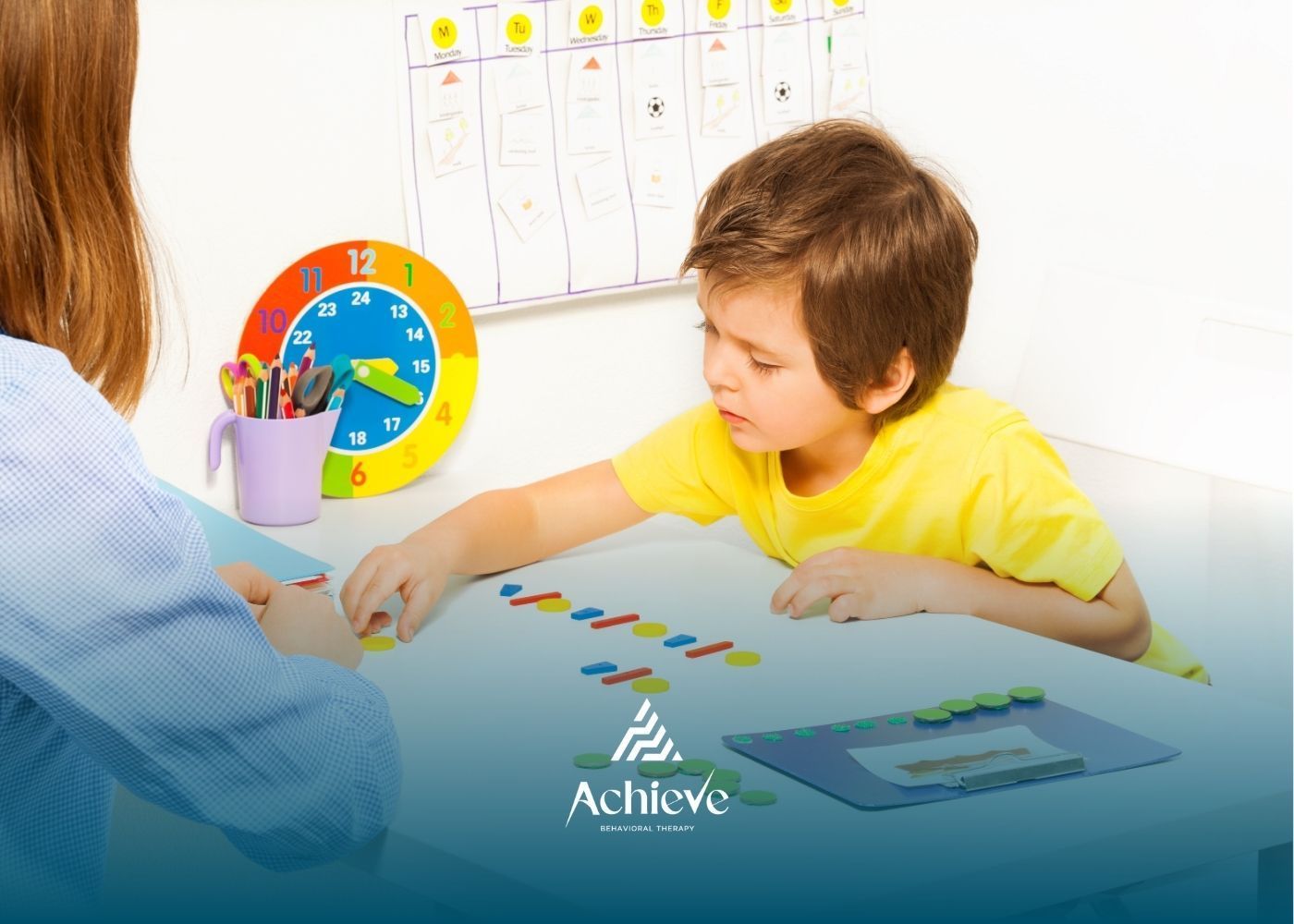Unlock Your Future with RBT Certification Today

Key Highlights
- Begin a rewarding career path as a
Registered Behavior Technician (RBT) and make a positive impact.
- RBT certification requires completing a 40-hour RBT training course based on the official RBT Task List.
- You must pass a hands-on competency assessment to demonstrate your practical skills in behavior analysis.
- The certification process includes meeting eligibility criteria and passing the RBT certification exam.
- Becoming an RBT is an excellent first step for professional growth in the field of applied behavior analysis.
Introduction
Are you passionate about helping children with autism and looking for a fulfilling career? Obtaining your RBT certification can open the door to a rewarding career in the growing field of Applied Behavior Analysis (ABA). As a Registered Behavior Technician, you work directly with individuals to help them build essential life skills, such as communication and social interaction.
This guide will walk you through the steps and benefits of becoming an RBT in New Jersey and North Carolina.
Understanding RBT Certification and Its Importance
An RBT certification is a paraprofessional credential in behavior analysis. A Registered Behavior Technician (RBT) provides ABA therapy services under the close supervision of a Board Certified Behavior Analyst (BCBA) or a Board Certified Assistant Behavior Analyst (BCaBA). This role is critical for implementing treatment plans effectively.
Following a strict code of ethics, RBTs ensure that clients receive the highest quality of care. Their work is fundamental to the success of behavior intervention programs. Understanding the differences between an RBT and a BCBA is key to charting your career path in this field.
Who Needs RBT Certification in New Jersey and North Carolina
If you are looking for an entry-level position in the behavioral health field, RBT certification is an excellent starting point. This career path is perfect for special education teachers seeking extra income, college students pursuing a degree in a related field, or anyone with a passion for helping children with autism. It provides a flexible and meaningful way to grow your career in Applied Behavior Analysis.
In New Jersey and North Carolina, the demand for qualified Registered Behavior Technicians is growing. While specific requirements may vary slightly by state, the core process remains consistent. For example, to become an RBT in Georgia, you must complete a 40-hour training, pass a background check and competency assessment, and then pass the RBT exam.
This certification serves as a strong foundation, whether you are just beginning your journey or are an experienced professional looking for strong clinical support. It offers a direct way to make a difference while building valuable skills.
RBT vs. BCBA Certification – Key Differences for Parents and Professionals
Understanding the distinction between an RBT and a Board Certified Behavior Analyst (BCBA) is important for both parents seeking services and professionals planning their careers. An RBT is a paraprofessional who works directly with clients to implement treatment plans created by a BCBA. The RBT certification is an entry-level credential in the field of behavior analysis.
In contrast, a BCBA is a graduate-level behavior analyst who conducts assessments, designs intervention plans, and supervises RBTs. They hold a master's degree and have completed extensive supervised fieldwork. The BCBA is responsible for the overall treatment strategy and ensures the RBT is implementing it correctly.
This table highlights the main differences:
| Feature | Registered Behavior Technician (RBT) | Board Certified Behavior Analyst (BCBA) |
|---|---|---|
| Role | Implements behavior intervention plans | Conducts assessments and designs treatment plans |
| Education | High school diploma or equivalent | Master’s degree or higher |
| Supervision | Works under the supervision of a BCBA | Provides supervision to RBTs and BCaBAs |
| Certification | 40-hour training and competency assessment | Graduate-level coursework and extensive fieldwork |
Steps to Become a Registered Behavior Technician (RBT)
The journey to RBT certification involves a clear, structured process. You will start by ensuring you meet the basic eligibility criteria. From there, the main steps include completing a specialized training program, passing a hands-on skills evaluation, and successfully clearing the final certification exam.
This certification process ensures you are well-prepared to provide high-quality care under the supervision of a BCBA. Each step is designed to build your knowledge and practical skills, preparing you for a successful career. Let's look at the requirements and training in more detail.
Meeting RBT Eligibility Requirements
Before you can begin your training, you must meet a few basic eligibility requirements set by the Behavior Analyst Certification Board (BACB). These prerequisites ensure that all candidates have a foundational level of maturity and education suitable for the role. You will need to gather documentation to prove you meet these standards when you apply.
The primary requirements you must fulfill are:
- Be at least 18 years old
- Possess a high school diploma or its equivalent
- Pass a criminal background check and abuse registry check
Once you have confirmed you meet these initial criteria, you can move forward with the training and application process. Be prepared to submit proof of your age, education, and a recently passed background check with your application. There is also an application fee required when you submit your materials to the BACB.
Navigating the 40-Hour RBT Training Course
A crucial part of your certification is the 40-hour RBT training course. This training program must be approved by the BACB and cover all tasks on the RBT Task List (2nd Edition). This ensures you learn the essential concepts and skills needed to be an effective technician.
The training covers a wide range of topics that are foundational to the practice of ABA. Some key areas you will study include:
- Measurement and data collection techniques
- Skill acquisition strategies
- Behavior reduction procedures
Upon finishing the training, you will receive a certificate of completion, which is a required document for your RBT application. This comprehensive training program prepares you not only for the competency assessment and final exam but also for the real-world challenges and rewards of working as an RBT.
Your Questions Answered About RBT Certification
The path to RBT certification can bring up many questions, from the costs involved to the format of the final exam. It is natural to want clear answers as you invest your time and energy into this new career. Having the right information can make the entire process feel more manageable and less overwhelming.
To help you feel confident as you move forward, we have compiled answers to some of the most common questions about the RBT certification process. Let's address your concerns about costs, online options, and the certification exam.
How Much Does RBT Certification Cost?
The total cost of RBT certification can vary. The 40-hour training program can range from free to around $200. After completing your training, you will pay a $50 application fee to the BACB and a separate $45 fee to take the certification exam at a testing center.
Are There Online Options for RBT Certification in the United States?
Yes, you can complete the 40-hour RBT training course through various online providers, offering flexibility for your schedule. However, the hands-on competency assessment must be done in person with a supervisor, and the final RBT certification exam must be taken at an official Pearson VUE testing center.
What Is the Format of the RBT Certification Exam?
The RBT certification exam is a multiple-choice test administered at a Pearson VUE center. The exam format consists of 85 questions, though only 75 are scored. You will have 90 minutes to complete the test, which covers the concepts learned during your training and demonstrated in your competency assessment.
Conclusion
In conclusion, obtaining your RBT certification is a vital step towards making a positive impact in the lives of individuals with autism and related conditions. By understanding the significance of this certification and following the necessary steps to achieve it, you position yourself as a valuable resource for families and professionals alike. The journey may seem daunting at first, but with determination and guidance, you can unlock a fulfilling career that not only enhances your skills but also contributes significantly to the community. Ready to take the next step? Get started on your RBT certification journey today!
At Achieve Behavioral Therapy, we support your journey to becoming a Registered Behavior Technician (RBT). Whether you're just starting or looking to enhance your career, we provide the guidance and resources you need to succeed. Your future in ABA therapy in New Jersey and North Carolina begins now!
Are you ready to make a difference? Contact us today!
Frequently Asked Questions
What is the RBT certification, and why is it important for working with children with autism?
The Registered Behavior Technician (RBT) certification is a key credential for professionals working in the field of Applied Behavior Analysis (ABA). It ensures that individuals have the necessary skills to provide effective therapy to children with autism and related conditions, making a lasting impact on their development.
How long does it take to become an RBT, and what steps are involved?
The path to becoming an RBT typically includes completing a 40-hour training course, passing a competency assessment, and taking the RBT exam. The timeline may vary based on your availability, but with determination and the right support, you can complete it and start making a difference in a matter of months.
How can obtaining an RBT certification help me in my career as an ABA therapist?
Earning your RBT certification not only enhances your professional skills but also opens up more career opportunities in the field of ABA. It positions you as a trusted resource for families and professionals, increasing your ability to contribute meaningfully to your community and helping you grow in a rewarding career.
SOURCE:
https://www.bacb.com/rbt/
https://drexel.edu/soe/resources/career-path/rbt-vs-bcba/
https://absc.ku.edu/rbt
https://onlinecounselingprograms.com/mental-health-careers/how-to-become-behavior-analyst-bcba/aba-certification-explained/
https://www.atcconline.com/
Need Support?
We're Here to Help!
Our experienced team is ready to assist you. Reach out today to discuss how we can support your child's development and well-being.
Get started with expert ABA therapy today.






